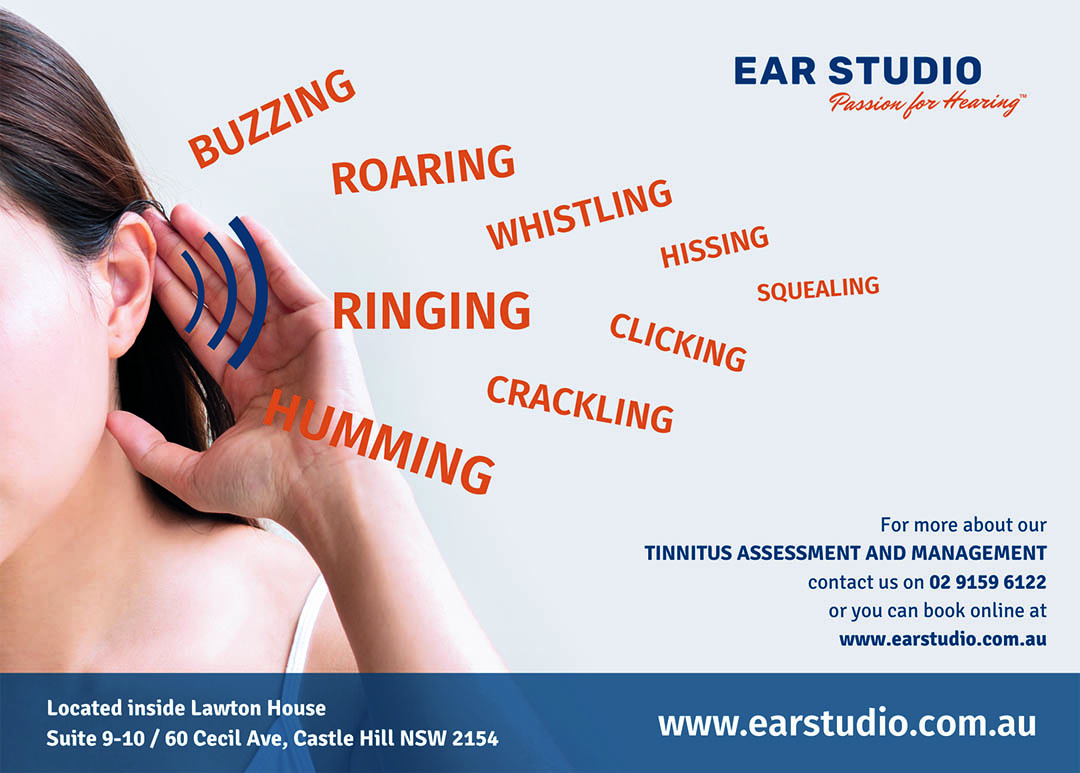BUZZING, RINGING, HUMMING…
Why do some people hear a constant noise in their ears?
Hearing Care and Tinnitus Management
It is called “Tinnitus” – the perception of a ringing or other type of sound and can affect one or both ears.
While most of us have heard about tinnitus, it is often difficult for those who are not affected to fully comprehend the extent a ‘noise in your head’ can impact one’s day-to-day life. Around 15-20% of the population is affected by tinnitus, for some periodically and others permanently and for about 2% of the population tinnitus can have a debilitating effect on life and it is important to make sure it is not simply dismissed, but properly investigated.
Overall, we distinguish between subjective tinnitus – the type that only the individual can hear and objective tinnitus – the type a practitioner can hear during an examination. The type of sound perceived varies, ranging from high-pitched ringing to low-frequency humming.
Some people describe it like crickets or cicadas. Stress, lack of sleep, and exposure to loud noises are known triggers for tinnitus, with symptoms often worsening under prolonged stressful conditions. But there are also a multitude of other reasons and contributing factors to why someone would experience tinnitus.
These include ear wax, blocked sinuses, medication, and pathological causes. The path to relief can also vary from one cause and person to another.
Getting to the bottom of a person’s tinnitus’ origin it is helpful to know that tinnitus is not always a condition in itself but may be a signal of an underlying condition. A hearing care professional is a great place to start the investigation.
One of the first steps when looking into tinnitus treatment options should be a consultation with tinnitus assessment. The results will pinpoint the degree of impact the tinnitus has on which part of one’s life. For example, to what degree it affects the ability to rest or enjoy social settings.
A comprehensive hearing assessment should also be part of this assessment as tinnitus is often, but not necessarily related to hearing loss.

Results may offer clues of the cause and potential treatment options. Some clinics specialise in tinnitus treatment and may offer further in-depth analysis. Depending on the result the hearing care professional may refer to a medical practitioner or might suggest a few options to investigate.
Treatment options for tinnitus are diverse and depending on how everyone reacts to it, the treatment can also be vastly different from person to person. Amplification with hearing aids or using external sounds to mask tinnitus are common approaches.
There are also a range of smart device apps available – many of them free of charge. The better ones can offer a choice of soundscapes to enjoy and mask the tinnitus. Another way to learn to deal with tinnitus includes Cognitive behavioural therapy (CBT), this is a process during which a practitioner, often a psychologist, will use the neuroplasticity of the brain to learn to accept and therefore ignore the disrupting sound.
While there is not one specific ‘cure’ for tinnitus there are a range of things that can be done to help and improve the situation significantly. A hearing care professional or GP is the best place to start to this journey to relief.
You can book an appointment with Ear Studio (located in Lawton house in Castle Hill) to book in to begin your Tinnitus Assessment and Management. Please call us on 02 9159 6122 or visit our website earstudio.com.au to book your appointment.











